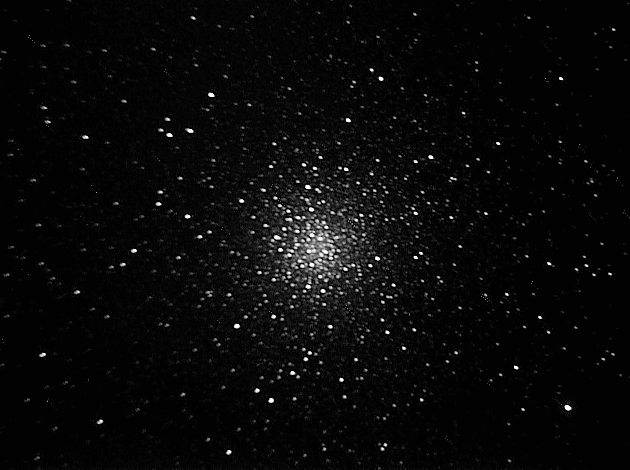

M10, in the constellation of Ophiuchus, was discovered by Charles Messier on 29 May 1764. It is 14,300 light-years away and is about 83 light-years in diameter. It has an integrated magnitude of 6.6 which is too dim to be visible to most people's naked eyes, but it may be glimpsed in binoculars in a dark sky.
 |
M10 captured with my LX200 fitted with a 0.33 focal reducer (focal length 800 mm). The diameter of the cluster is about 12 minutes of arc. The brightest stars are about magnitude 12 although the cluster as a whole has a magnitude of 6.6 putting it on the verge of naked-eye visibility in a totally dark sky. Where I live (latitude 52° N) there is no true darkness at this time of the year, but M10 is bright enough to show through and I took the pictures soon after midnight. As always I used a CLS filter to remove the worst of the artificial-light pollution. Date and Time: 28th May 2012 00:27 to 00:37 UT Camera: Starlight Xpress MX716 Telescope: LX200 with 0.33 focal reducer and Astronomik CLS filter Capture: star_mx7. 10 frames 60 seconds exposure Processing: star_mx7. Dark frame subtracted, enhanced factor 25, black level. Registax 5. All frames stacked, wavelets 1-2=5, gamma 1.4, brightness -6 Focus Magic 2,100. |
||
Home Back to DSOs